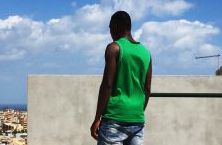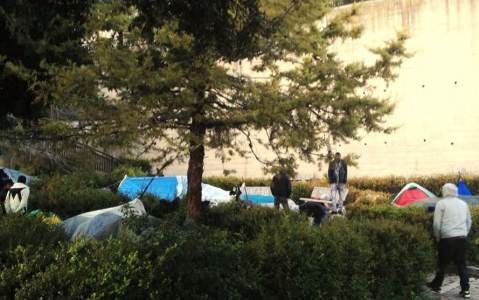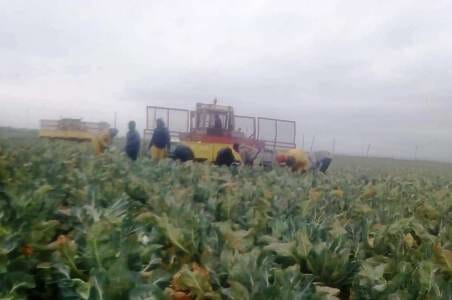Stories Of Ordinary Integration, Against The Stereotypes!
On July 4th we had the pleasure of engaging in a conversation with Stephen (not his real name), a young 23-year-old man from Togo. Stephen arrived in Italy in July 2016. Having been hosted in two centres in Sicily, he was entered for the project Refugees Welcome, a “third reception” network that supports families to host migrants who, once they have left the official reception system, nonetheless still need some support in order to become independent.
Sitting down in a bar in Syracusa with a glass of granita, looking out across the sea, Stephen told us about his difficult arrival in Italy. “When I got here, they put me in prison”, he says with a bitter smile. He landed at the port of Pozzallo, and was arrested under the accusation of aiding illegal immigration, joining the ranks of the so-called forced boat-drivers, those who are picked out by the Libyan traffickers and forced to drive the small boats full of migrants.
After 15 days in prison, Stephen was let out and abandoned to himself, without any kind of legal information. We decided to go back to Pozzallo, where he was lucky enough to meet a woman who, guessing the precarity of his situation, offered him a meal and put him in touch with the associations of the OpenEurope project (Oxfam, Borderline Sicilia and the Waldesian Deaconry). After checking out his situation, Stephen was transferred to Pachino, in the temporary reception centre run by the Waldesian Deaconry and, from there, to the SPRAR centre “Stella Maris”.
Stephen says that his stay at Pachino was positive overall, even if the small scale of the city and the difficulties in being accept by the community were a challenge at first. Over the year and three months he spent in the town he attended the Italian school twice a week and, thanks to an accidental meeting in the piazza, took up the chance to be a volunteer with the Red Cross and, after this, with Caritas. In his volunteering activity he engaged in the first aid team at various events across south-eastern Sicily and participated in the regular distribution of food and clothes in the housing estates attended by Caritas.
After finishing his spell in Pachino, Stephen began to work in the countryside. “First I didn’t known that they were exploiting me, then I understood that they had exploited me far too much” he says about his employer, for whom he worked 12 hours a day, 7 days a week for three month, thinking that this was normal. Despite this experience of harsh exploitation, sexual harassment that he has experienced in Sicily and a false diagnosis of of HIV used to sack him, Stephen has not lost his desire to enter into the Refugees Welcome network,
It has now been six months since Stephen has been living in Syracuse with ‘L.’, with whom he not only shares a roof but also a friendship. “I have my room, she has hers […] now I know that my relation with L. is more than that though […] she treats me like a son.” The two often share time together and activities both at home and outside, including eating together and going out with friends; often this goes beyond Stephen’s initial expectations, who was scared at first about the possible problems of living with someone he did not know. “The project has ended but even before that, when I started working, we began to split everything… the houses, water, the shopping. Everything. We each do what we want”, Stephen explains. “I like to split the costs and have my independence. So as soon as we split things everything’s fine.”
Stephen now works as a cultural mediator, taken on after 6 months of training in a course organised by the Giorgio La Pira foundation. Given his knowledge of several languages, he found himself being an interpreter since his arrival in Italy. However, during his training as a mediator he discovered the beauty and complexity of linguistic-cultural mediation. “You need to be universal, you need to manage everything. I take to it well because I used to organise things for children, teenagers, families.” His previous voluntary experience has also contributed to providing him with the tools and inspiration necessary for his current job.
Stephen is currently engaged in training as a planner and surveyor in order to pursue a degree in architecture. He emphasises that he enjoys living in Syracuse but would be happy to move to a different Italian city in order to continue his studies at university, for which he is saving up. “I feel like I’m lucky, I don’t know… I have friends who have a lot of problems” he concludes, after having reflected on his whole experience in Italy. He still has a sense of uncertainty and instability due to his legal status as an asylum seeker engaged in an appeal in the courts, after having his application rejected: he tells us about the stress connected with having to renew his papers every six months, a period of time made even briefer by the slow pace of Italian bureaucracy and the justice system.
The fact that he has still not received a form of protection has a serious impact on his educational and occupational situation, making it difficult for him to organise his life in the long term: “I feel like I’m beginning to get things together, but then every six months I go back to zero again”, he confides in us.
The interview is over, and we leave Stephen to his many tasks, as he drives off on his scooter.
Vittoria Fiore and Beatrice Mariottini
Borderline Sicilia
Project “OpenEurope” – Oxfam Italia, Diaconia Valdese, Borderline Sicilia Onlus
Translation by Richard Braude



